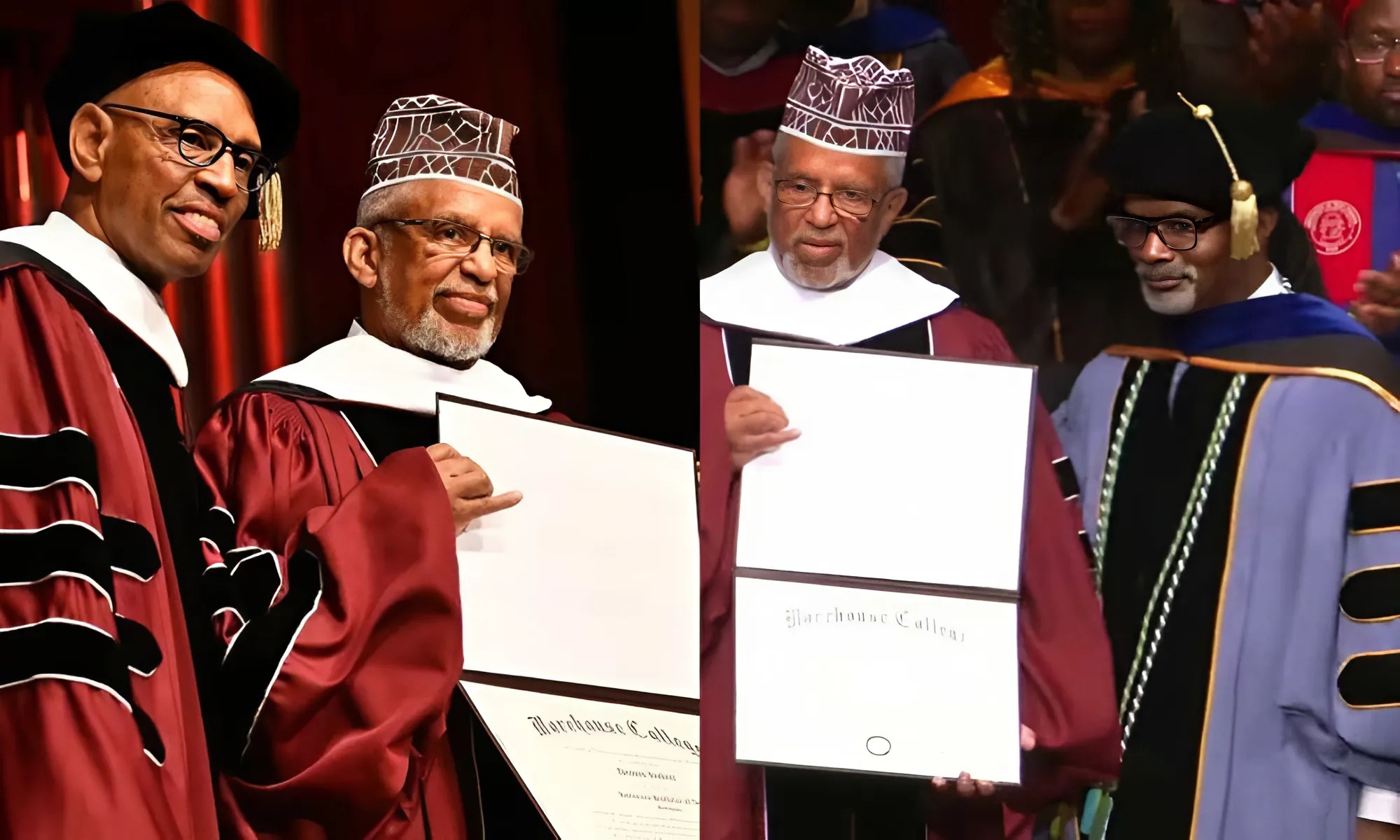
Nearly a century after an 18-year-old Black college student was lynched at a Georgia playground, his nephew has accepted his honorary posthumous bachelor’s degree.
Dennis Hubert, a sophomore divinity school student, received the posthumous degree from Morehouse College, a historically Black college in Atlanta, on Sunday, May 18, CNN and FOX affiliate WAGA reported. His nephew, Imam Plemon El-Amin, whom he never got the chance to meet, gladly accepted Hubert’s Bachelor of Arts degree in religion.
During the graduation ceremony, David Thomas, the university’s president, described Hubert as a “son of Morehouse, a martyr of justice, and what history now sees as the Trayvon Martin of the 1930s in Atlanta,” according to CNN. The college did not immediately respond to PEOPLE’s request for comment.
For El-Amin, now 75, the moment was important to his family and resonated with a common sentiment in Islam: a person’s status in the afterlife is elevated when their knowledge continues to help others, when their charity continues to benefit others and when loved ones pray for them.
“Many prayers were said in his name,” El-Amin, the Imam Emeritus of the Atlanta Masjid of Al-Islam, told CNN about the ceremony. “Many people remembered him and were informed about his life and his legacy, and so the knowledge was there, as well as the charity of him sacrificing his life so that we would be more conscious of the value of young life and the value of human life, but also the value of justice.”
On June 15, 1930, Hubert had spent the day at his mother’s and grandmother’s houses before going to the playground of Crogman School, a segregated school for Black children. He was in the area for less than 15 minutes before seven white men came up to the college student and accused him of insulting a white woman, according to the Equal Justice Initiative (EJI). They began attacking him, despite Hubert saying he knew nothing about their allegations.
“What do you want of me? I have done nothing,” a witness recalled the young man saying.
“Without investigation, police involvement, or trial, one of the white men held a gun to the back of Dennis Hubert’s head and shot him at point blank range in front of at least two dozen witnesses,” wrote the nonprofit organization, which was founded by lawyer Bryan Stevenson to end mass incarceration and fight against racial injustice.
The fatal attack was part of a wave of racially motivated killings during that era in the United States, especially in the south. There were more than 4,000 lynchings in the south between 1877 and 1950, the EJI reported.
After Hubert’s death, which reverberated through the county because his family was so well known, the seven men were arrested — an unusual occurrence at the time. Two days after the men were denied bail, the home of Hubert’s father, a beloved pastor, was intentionally burned to the ground, and a Baptist church that was attempting to raise money for the rebuilding and support the men’s prosecution was tear-gassed.
:max_bytes(150000):strip_icc():focal(749x0:751x2):format(webp)/Cornel-West-gives-the-commencement-address-during-the-141st-Morehouse-College-Commencement-052725-32e994cab55041dea82350fd7c06440e.jpg)
Despite the witnesses who saw Dennis’s murder, the seven men involved were acquitted and were convicted of lesser offenses.
“One defendant received 12-15 years imprisonment for voluntary manslaughter, while the defendant who confessed to firing the fatal shot received a sentence of just two years,” according to the nonprofit.
Almost a century after the Hubert family was terrorized — and lost a promising son — they are grateful he is finally recognized.
“Ninety-five years later, people are conscious of his life, which means he’s still alive,” El-Amin said, according to CNN, “though not here with us physically or in body, but his life, his will, and he is providing inspiration for those of us left behind.”
